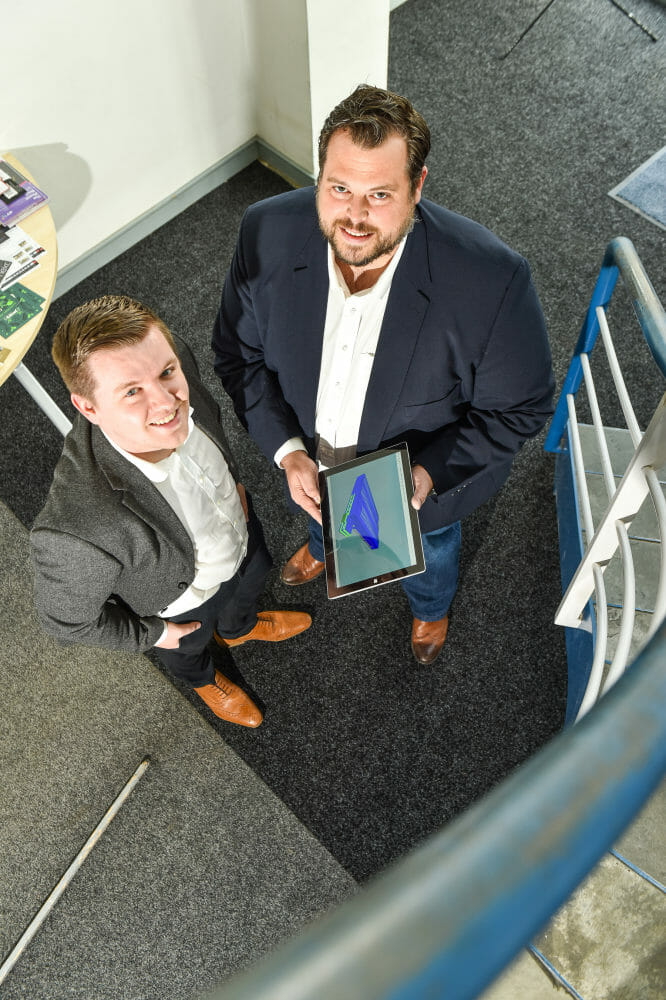
Yorkshire-based Yonder Consulting’s building physics engineering team has separated from the organisation’s mechanical and electrical engineering arm.
The building physics business will now be run entirely separately, its 12-strong team being known simply as Yonder and moving from Harrogate to Leeds before the year-end, following the amicable divorce.
Yonder’s building physics experts work with leading construction professionals, including architects, project managers and contractors, across the UK. It delivers significant sustainability and other benefits to their buildings, including lower construction costs, reduced running expenses – through factors such as minimised energy consumption – better indoor environments and lower carbon emissions.
The Yonder team: contributes to buildings’ passive design – their use of natural sources like the sun for heating, cooling, ventilation and lighting; leads on their active design, involving deploying non-natural elements, such as boilers and electric lighting, for these purposes; and defines constructions’ ideal renewable energy sources.
Explaining the reasons for the separation, Yonder managing director Rob Gill, who founded the business in 2012, said: “Building physics engineering is a specialist discipline in its own right and independence will allow us to concentrate fully on our field of expertise. Mechanical and electrical engineering is concerned with building services, whereas we focus on the whole construction.
“Separating will enable us to ensure passive design is rightfully prominent in a project, which maximises benefits for clients. It will also allow us to invest in our own specialism and deliver unbeatable customer care and service.”
Yonder’s building physics team has advised on hundreds of constructions in the public and private sectors across the UK. These have included commercial, distribution, education, healthcare, industrial, leisure and retail buildings.
Many of these developments have earned prestigious accolades, including Leeds’ First Direct Arena, which won the Royal Institution of British Architects’ Yorkshire Award last year after Yonder was the project’s energy assessor for client BAM Construction.
Yonder places state-of-the-art technology, including dynamic simulation modelling (DSM) software, at the core of many services it offers. DSM simulates energy flows around and through a building, allowing its thermal environment and energy consumption to be predicted.
The organisation’s services include: passive design analysis, daylight calculations, indoor air quality assessments, thermal comfort analyses, energy simulations, low and zero carbon technology feasibility studies, climate change scenarios, and computational fluid dynamics, which analyses internal and external air flow patterns, heat distribution and contaminants.
Yonder are on the Chartered Institute of Building Service Engineers’ Low Carbon Consultants Register and are Building Research Establishment Environmental Assessment Method accredited professionals.
Mr Gill said: “Independence will allow us to give freer rein to our successful philosophy. We believe you can’t make a construction truly sustainable unless the internal environment, energy consumption, carbon dioxide emissions and building economics are balanced.
“That means internal comfort should never be diluted by factors like energy efficiency and costs, though these are equally important. Yet in too many projects this watering down is exactly what happens.
“Our balanced approach echoes the internationally recognised definition of the three pillars of sustainability – the economy, society and the environment.”
Mr Gill is the major shareholder in the new Yonder, the remaining equity being held by his fellow executive director Nathan Evans.
